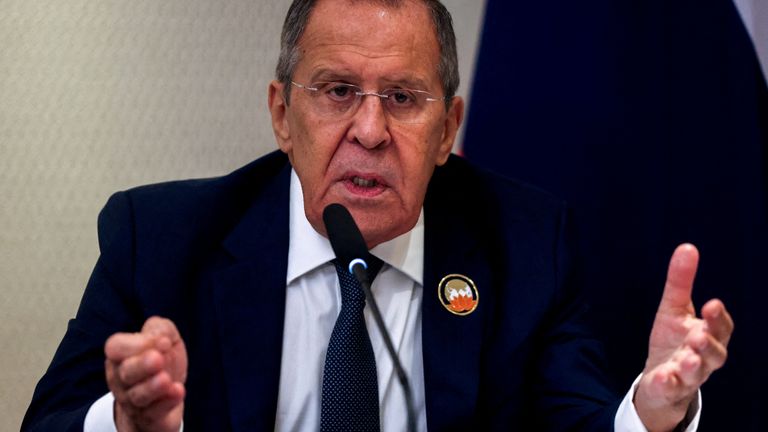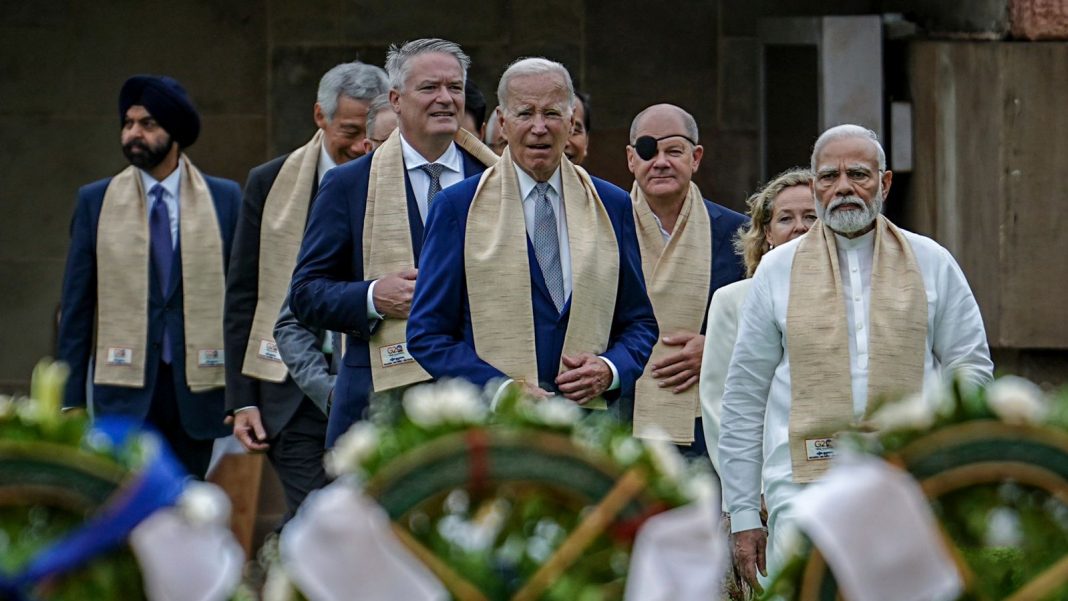As a PR exercise, the G20 summit in New Delhi was a masterclass by Narendra Modi.
At times, the Indian prime minister looked like he’d been anointed, rather than simply the latest rotating host.
He is the leader du jour, the much-needed strategic counterweight in a divided world.
Prime Minister Rishi Sunak and his wife Akshata Murty visited the Swaminarayan Akshardham Hindu temple in New Delhi. Pic: AP
Members appear so drawn to his economic, military and bridge-building potential, they’re willing to put aside concerns about his nationalist politics at home.
But some argue the G20 is now nothing more than a talking shop.
And this year’s summit, they say, has provided little concrete progress on tackling climate change or wealth inequality.
They also claim there is little detail about the new economic corridor between India, the Middle East and Europe.
And yet, it looks like most members feel like they got something out of this summit.
Most critically, they avoided failure.

Russian Foreign Minister Sergei Lavrov complained of the attention on Ukraine
But you need only to look at the passing of the baton to see how fragile this group is.
President Lula of Brazil has already promised Russian leader Vladimir Putin would not be arrested in Brazil if he attends the Group of 20 meeting in Rio de Janeiro next year.
Interviewed on the sidelines, Mr Lula also said he’d be attending a BRICs bloc of developing nations meeting in Russia before the next gathering.
This is a new era in global politics.
The power dynamics have changed, and western dominance is being heavily tested.
Read more:
How worrying is Chinese ‘spying’ in parliament?
Sunak was charming, but wait to see what’s in the trade deal
The Russian Foreign Minister Sergey Lavrov welcomed the wording on Ukraine, mostly, of course, because it didn’t condemn or hardly mention Russia.
He declared: “Thanks to the consolidated position of the global south defending its legitimate interests, it was possible to prevent the success of the West’s attempt to again ‘Ukrainise’ the entire agenda.”
This content is provided by Spreaker, which may be using cookies and other technologies.
To show you this content, we need your permission to use cookies.
You can use the buttons below to amend your preferences to enable Spreaker cookies or to allow those cookies just once.
You can change your settings at any time via the Privacy Options.
Unfortunately we have been unable to verify if you have consented to Spreaker cookies.
To view this content you can use the button below to allow Spreaker cookies for this session only.
Click to subscribe to the Sky News Daily wherever you get your podcasts
In a news conference as the summit ended, French President Emmanuel Macron tried to hit back, saying the G20 “supports territorial integrity in UN charters”, calling that “the opposite of what Russia is doing”.
Canada’s Justin Trudeau also weighed in, saying that if it were up to just him, the language on the Ukraine war in the joint declaration would have been stronger.
But the G20 has changed irrevocably and its members also know, over the next couple of years, they may well have to fight for its survival.







